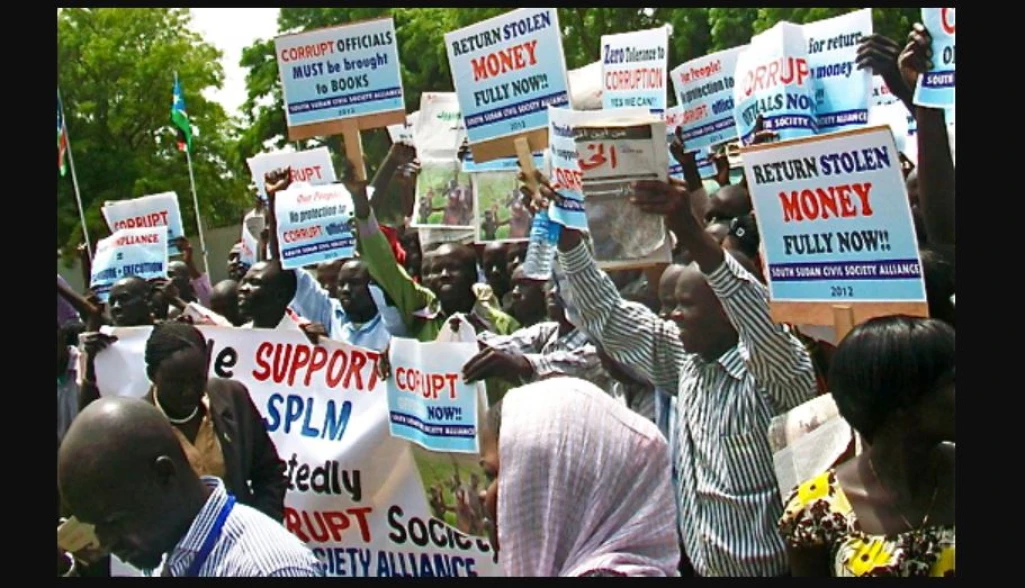
South Sudan Anti-Corruption Commission says the country needs to improve its corruption indexing performance.
“Our country is known because of corruption,” the anti-graft boss said.
In 2021, South Sudan ranked last on Transparency International’s Corruption Perception Index, which ranks 180 countries by their perceived level of public-sector corruption.
Ngor Kulong Ngor, who heads the national anti-corruption body, said the country now has an opportunity to reform and adopt new laws that will strengthened the fight against graft.
The body is currently using the Southern Sudan Anti-Corruption Act 2009. Kulong said it needs to be revised.
“The reform of anticorruption is one of the top goals of the revitalized peace agreement and for us to achieve that goal, there is an urgent need to review and amending 2009 Act,” he emphasized.
Transparency International often attributes the level of corruption in South Sudan to systemic corruption involving high-level public officials and vast sums of money, often accompanied by gross human rights violations, and yet impunity has been the norm, rather than the exception.
Several senior government officials have already been sanctioned and assets frozen by the European Union and the United States over corruption and human rights violations in South Sudan.
The Sentry has also accused some leaders, including the family of President Salva Kiir or engaging on corrupt means to amass wealth with foreign corporations.
Transparency International called for strengthening of anti-corruption agencies and justice institutions to provide accountability – no matter how high-level the culprit.
Kulong said South Sudan must “clean its image” through reformed laws.
“Without this law, we will not develop. There is a need to amend the acts to protect the complainants, the witnesses, and anti-corruption officials. We have not been protected,” He stated during a two-days validation meeting in Juba to review the anti-corruption act.
The meeting is organized by the National Constitutional Amendment.
The 2018 revitalized peace deal calls for the review of anticorruption Act 2009 to enable the Commission effectively perform its functions of protecting public property, investigating and prosecuting cases of corruption.
This, it said, is to help the anti-graft body to also combat administrative malpractices in public institutions, and promoting ethical standards; protect the independence of the Anti-Corruption Commission and empower it from political interference with corruption cases whether at the investigation stage or at the commencement of trial before courts of law.
Gichira Kibara, Chairperson of the National Constitutional Amendment Committee said the review will borrow good practices from the regional and the international bodies to strengthen the ant-corruption laws.
“The aim at the end of the day is to have the best anti-corruption laws in South Sudan. The standard of the good law are well established both within the region and internationally, and also the agreement has established some of the pillars of good laws. We will be looking at all those principles in order to agree” Kibara underscored.
Transparency International have called for sustainable progress on anti-corruption can only be achieved if societal and institutional checks on power are ensured. It underlined that corruption plunders precious natural resources and impedes access to public services for millions of people.